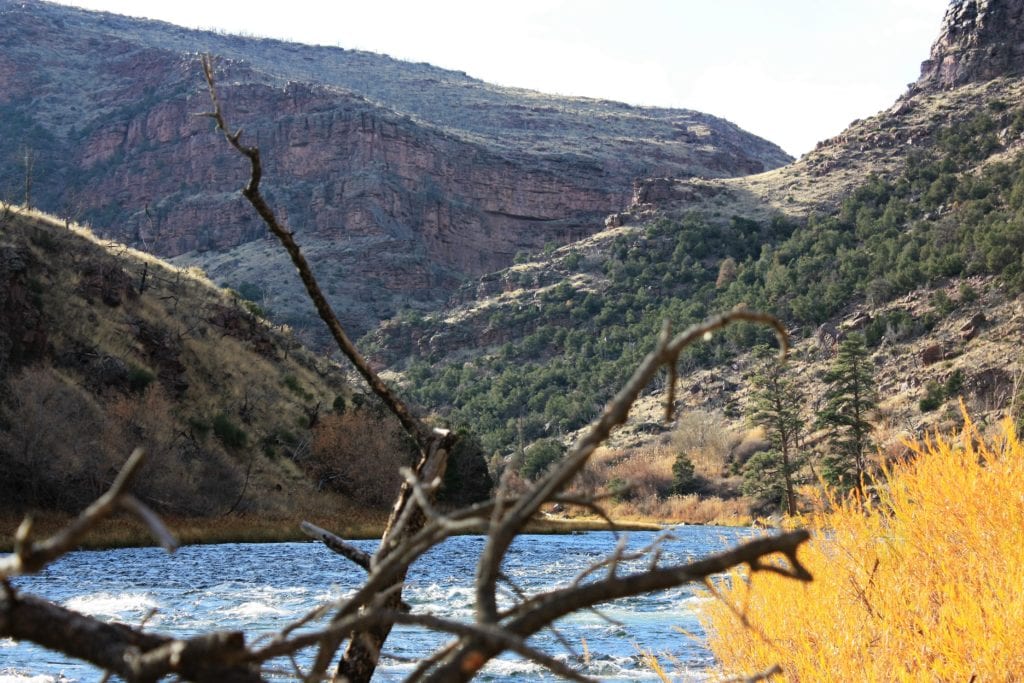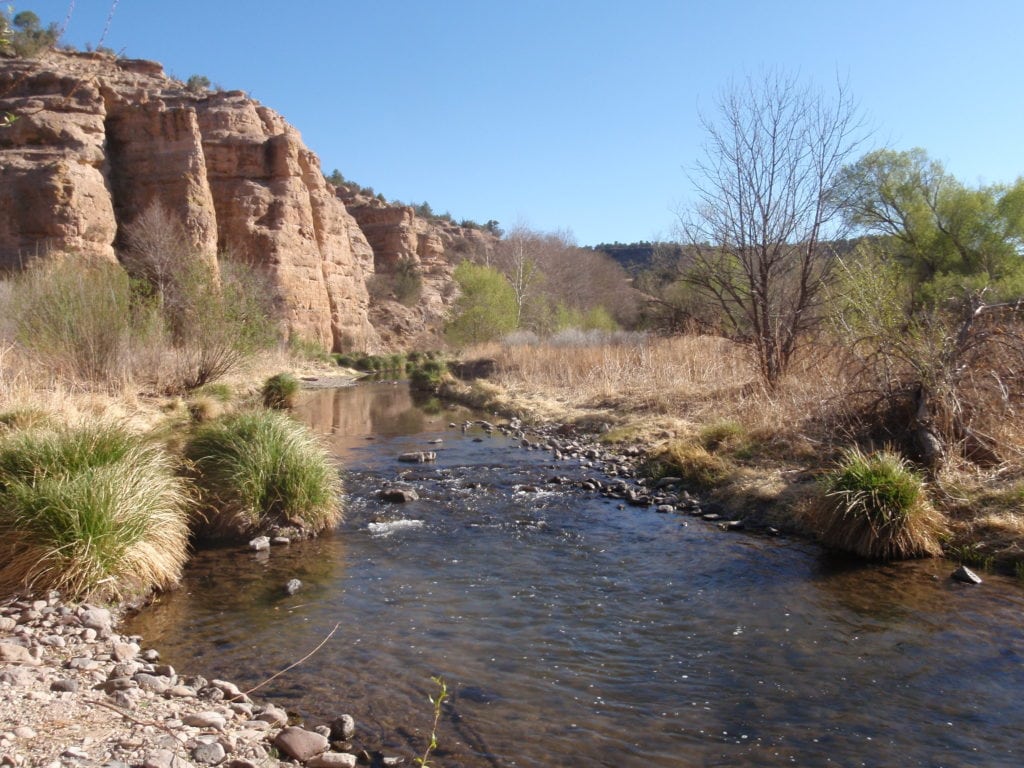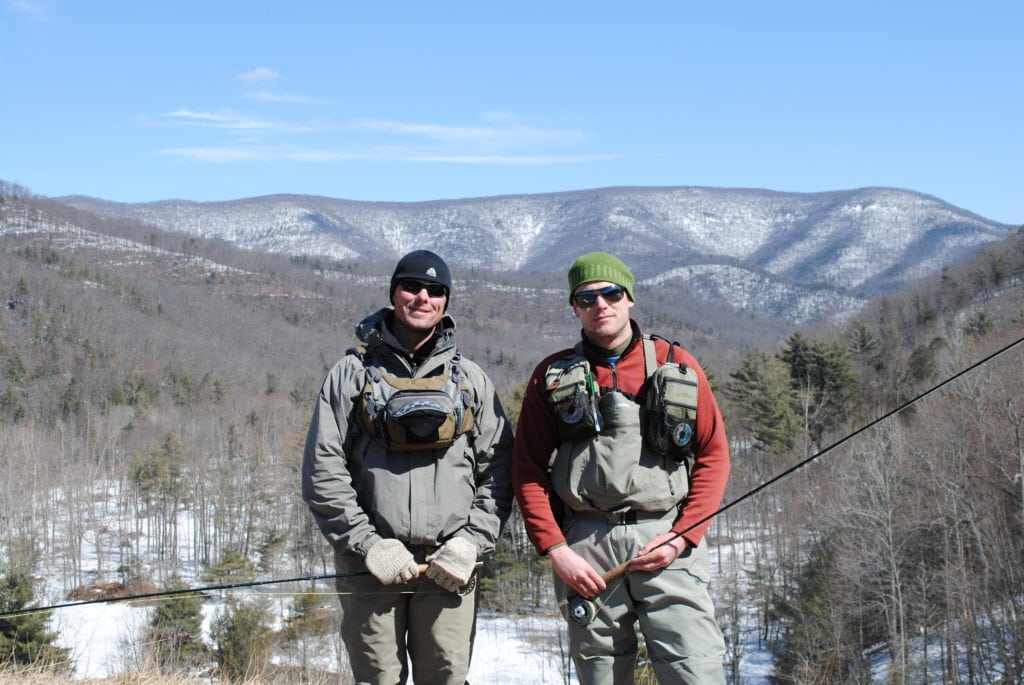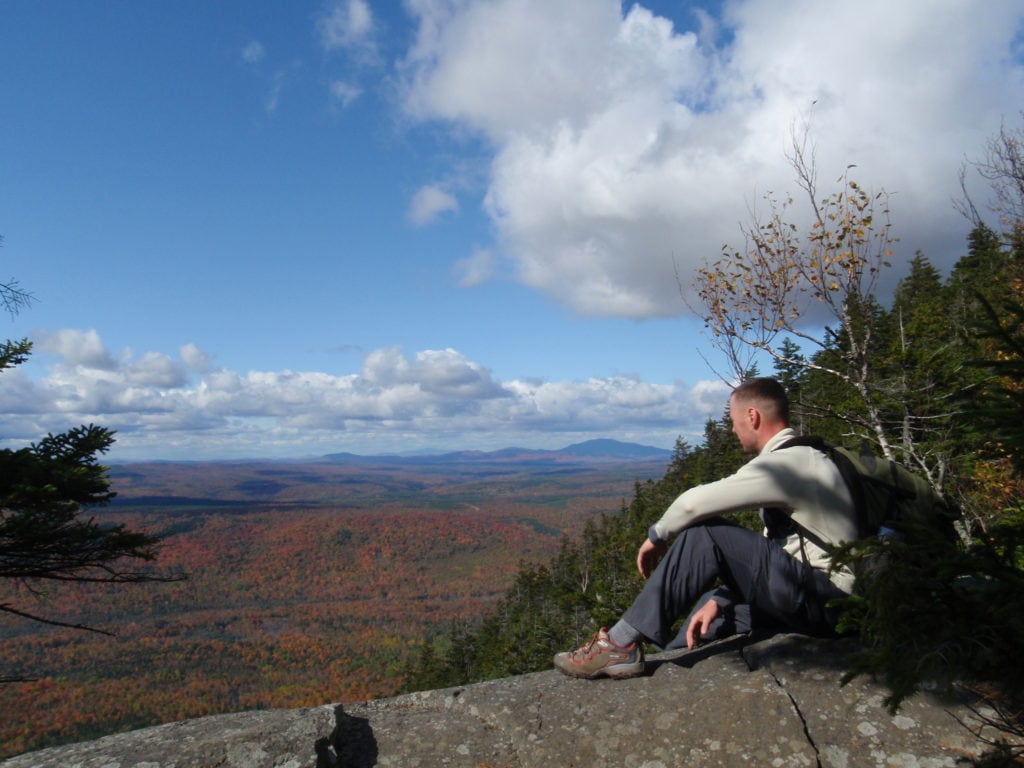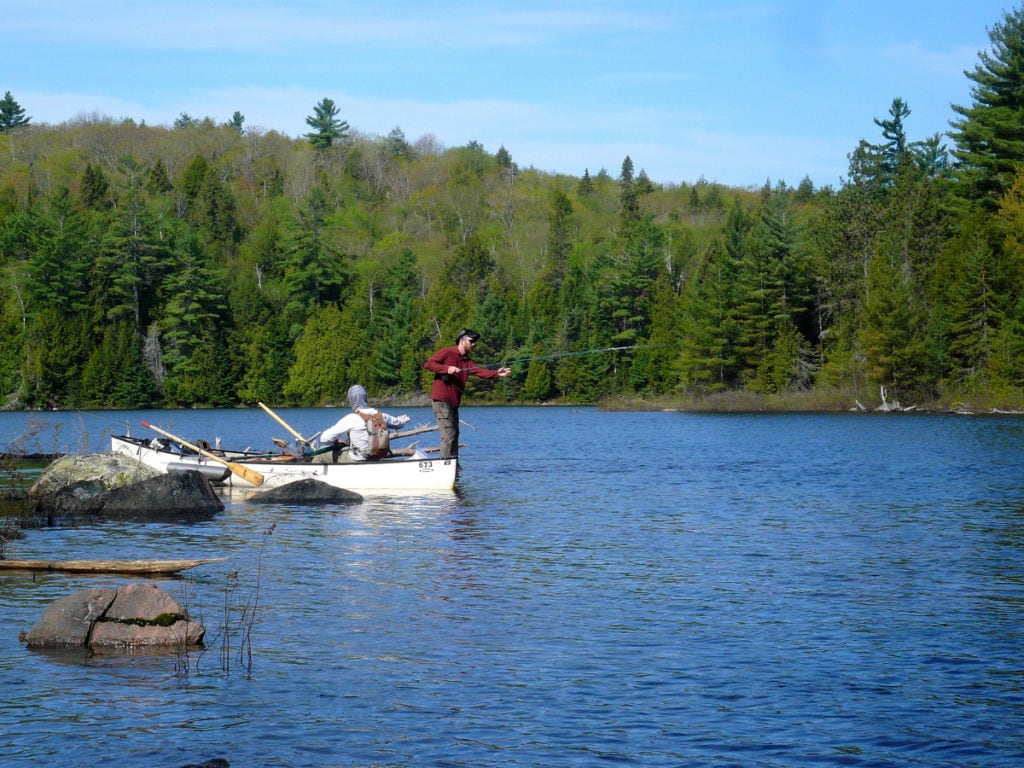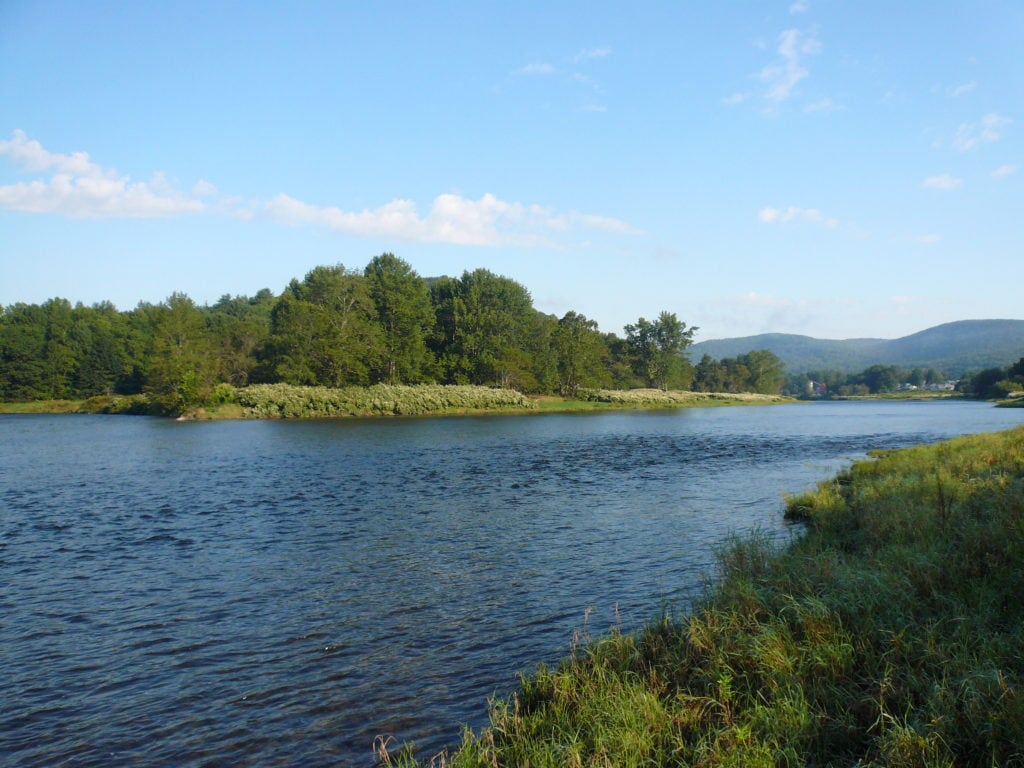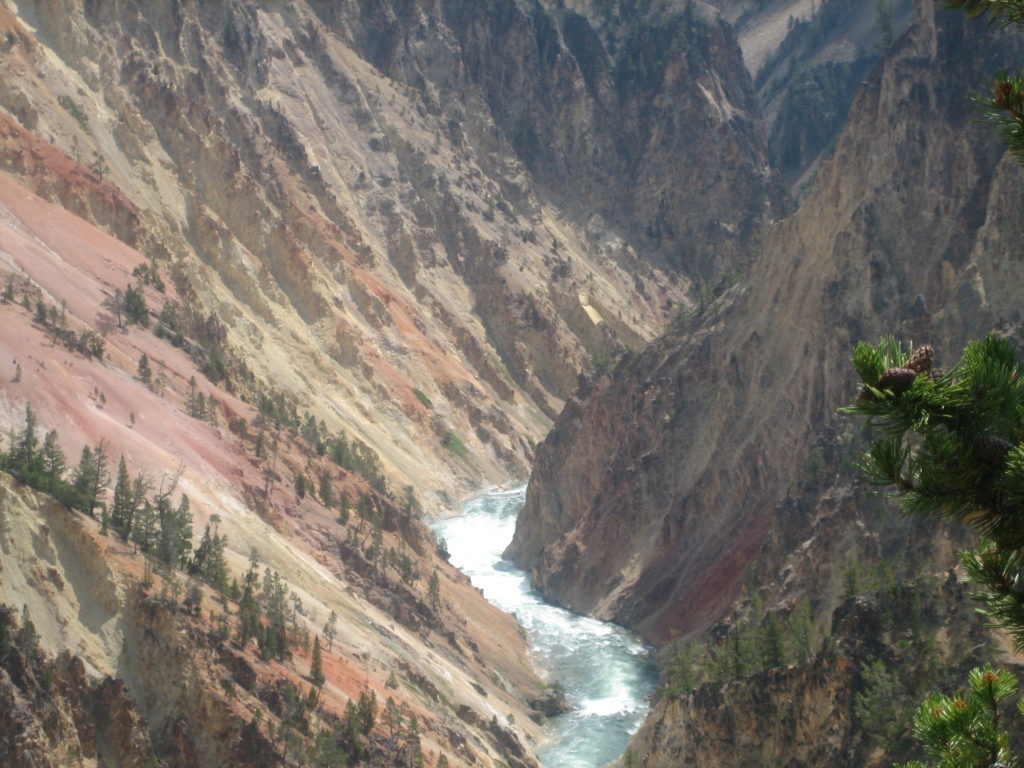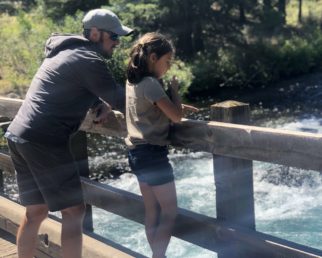Determining What’s Natural – A Worthwhile Endeavor?
The words, “native,” “wild,” “stocked,” and, natural often swim through my head on angling adventures. Some “accepted” definitions of these words will follow but as a quick introduction – all represent a degree of human influence on an ecosystem. Some sense of the “human influence factor” of a fishery is important to many people in the angling world because much acclaim is given to those anglers with enough resources to go where the amount of human influence is the least. I’ve been struggling with this idea of “acclaim” in the angling world and how it can be both unifying and divisive. What follows is a preliminary attempt to end that struggle.
Why Determining “What’s Natural” is Important…To Me
Throughout my angling life, I’ve made it a point to travel as often as possible. I’ve discussed the professional reasons for my travels in previous blogs – mainly to learn new techniques from other professionals and to develop lasting relationships with some of these folks. Personally/Emotionally I go on these trips for a couple of reasons. I just want a glimpse into what this planet used to look like before…well, that’s part of the problem…before human influence. I want to get a sense of how the creatures (mainly fish) in that little slice of our planet behaved before we humans started manipulating our surroundings in “significant” ways.
Yeah, yeah, yeah, I can feel the rolling eyes, especially at the use of the word, “significant.” Some people argue that human activities such as logging, mining, constructing skyscrapers, building dams, growing crops, raising livestock, etc. absolutely alter the planet but so what? We’re a product of the planet and carry on, mostly unwittingly, within the constraints of its system – a system that does not operate along moral lines or human interests.
Creative destruction has shaped and will continue to shape our planet – with or without us on it – so goes the argument. If I kept pursuing this logic (I won’t) it would eventually touch a nerve. Everyone’s threshold is different but at some point, justifying ALL human behavior as within the bounds of our planet’s system just doesn’t feel right. Did we “ruin” a place if we fundamentally altered it for our enjoyment, recreation, sustainability (source of water), or survivability (source of power)? What if the outcome of that endeavor became something remarkable? If you’re not following me just yet, allow me to clarify.
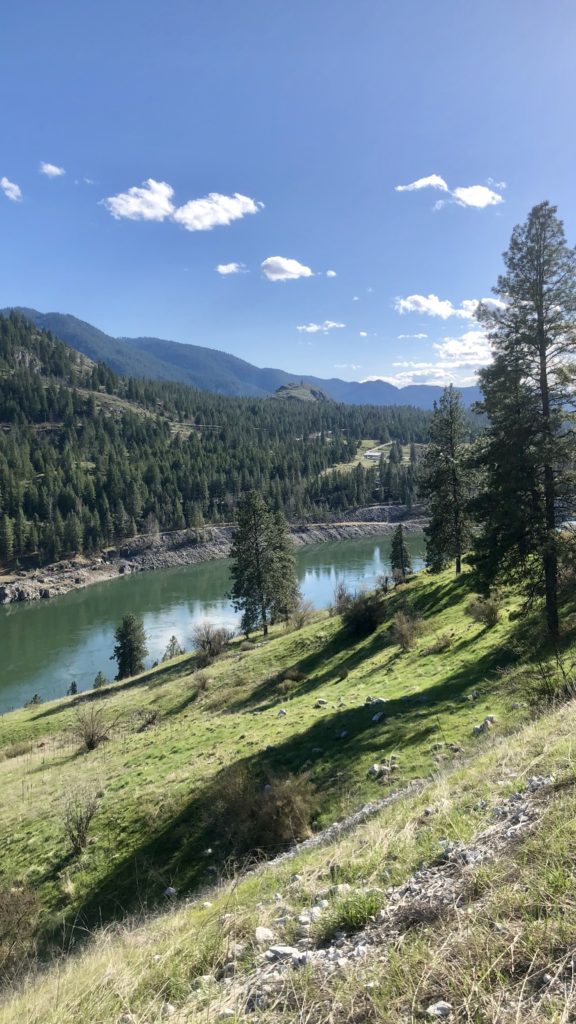
Words Have Meanings – These Are No Different
As promised, here it goes. I’ll define each word in the context of angling:
Native
If you’re holding a native fish, that fish is from that body of water/general drainage. Although humans may, who am I kidding, undoubtedly HAVE had measurable effects on it’s world, somehow its ancestors made it. Eating, breathing, breeding, and dying successfully enough to result in the fish you’re holding in this imaginary scenario. You wouldn’t have to follow that fish’s blood line back too far to arrive at a time when humans were rarely, if ever, present in the area. Here in Buffalo Niagara, there isn’t a huge variety of native species, especially of the gamefish variety. They are as follows – smallmouth bass, largemouth bass, lake trout, freshwater drum, perch, walleye, muskellunge, northern pike, white bass.
You don’t have to read too far into my definition of the word, “native” to get a sense of how I feel about these animals. They are the closest thing we have to a world that existed before our preeminence in the food chain. BUT – because we’ve fundamentally altered our planet in so many ways, one could argue there is no such thing as an organism unaffected/changed by humans in some way – pre- vs post- human. All fish alive today are post-human and are therefore affected by us in some way. In other words, there is a small flaw in the precious gem that is nativism.
Yeah, its kind of messed up but these are the thoughts that’ve popped in my head while walking brook trout creeks in Shenandoah and fishing for muskies in remote areas of Canada. How much influence have we had on this place? Why does this matter to me? Maybe it shouldn’t but it definitely does and I know I’m not alone in this conflict.
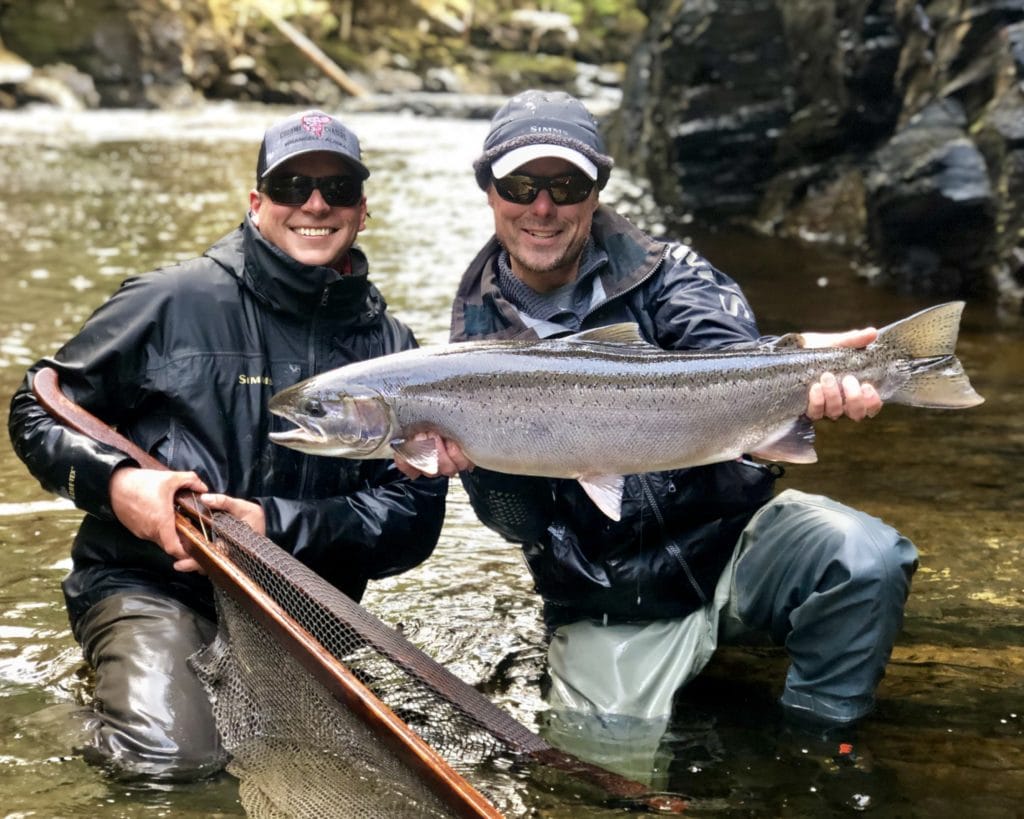
Wild
If you caught a wild fish, humans put the forefathers of that fish into that body of water a long time ago and they survived – eating, breathing, breeding, and dying. Why would humans put fish into a body of water that didn’t have them prior? The most common motives are recreation, source of food, and control of fish/organisms that were unintentionally introduced to the ecosystem (invasives). Some examples of wild fish in the Buffalo Niagara region are some of the brown trout and rainbow trout in our inland creeks.
The notion of intent in this concept is worth considering because we often demonize invasive species and glamorize stocked/wild species. It’s a strange behavior – both invasive and wild fish ended up in a place because HUMANS enabled it. Regardless of intent, forethought, premeditation, etc. – we humans tend to fundamentally alter our environment to suit our purposes and the environment responds in unpredictable ways. Yet, we put ourselves at the core of this interaction never really considering the ultimate outcome.
In doing so, weirdly I might add, we layer values (i.e. what’s awesome and what’s not) that guide our views and how we interact with this world. Here’s an example – many of those reading this can picture someone holding a beast brown trout caught in New Zealand. You probably think it’s pretty damn incredible…right? Why do you think that…when what it took for that fish to get that size isn’t remarkable? Generations ago, colonists introduced brown trout into that ecosystem and those fish dominated it with ease. With a steady source of food and little competition – why wouldn’t those fish get big? Still – it’s pretty damn impressive to behold…isn’t it? Don’t get upset just yet – I’m not bashing NZ angling – I’ll come back to this point.
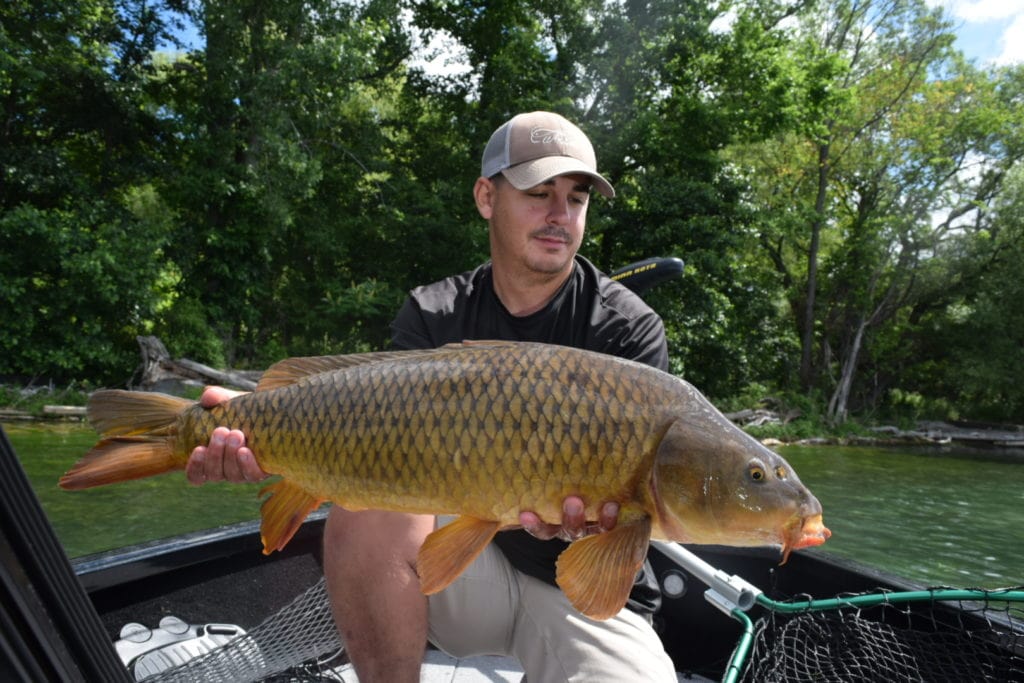
Stocked
If you’re holding a stocked fish, that fish was hatched in a fish hatchery, raised to a particular size in that factory, then released into a body of water. The reasons for doing this are the same as those mentioned in the discussion about wild fish.
What distinguishes a stocked fish from a wild fish is longevity in a system. Most of the time, stocked fish can’t sustain their own population because their environment can’t support it. Temperature, availability of forage species, lack of spawning substrate, predation, are all contributing factors. Ultimately, stocked fish don’t propagate beyond that stocked generation because something in the system is sub-optimal. Still, once introduced to its new home, that fish will do its best to survive and propagate the species. All this is done in vain – because once it expires, that’s it. Someone needs to put more fish in that body of water to maintain the population.
Out of the categories listed above, stocked fish represent the greatest amount of human influence on a fishery. A different perspective, and one that’s equally worth considering, is that stocked fish are gladiators. They are bred for excitement and their instincts, not lost from their genetic code even though it evolved in a completely different place, keep them alive. Seems kinda “test tubey,” and it is but it’s still pretty damn cool when it works out in our favor.
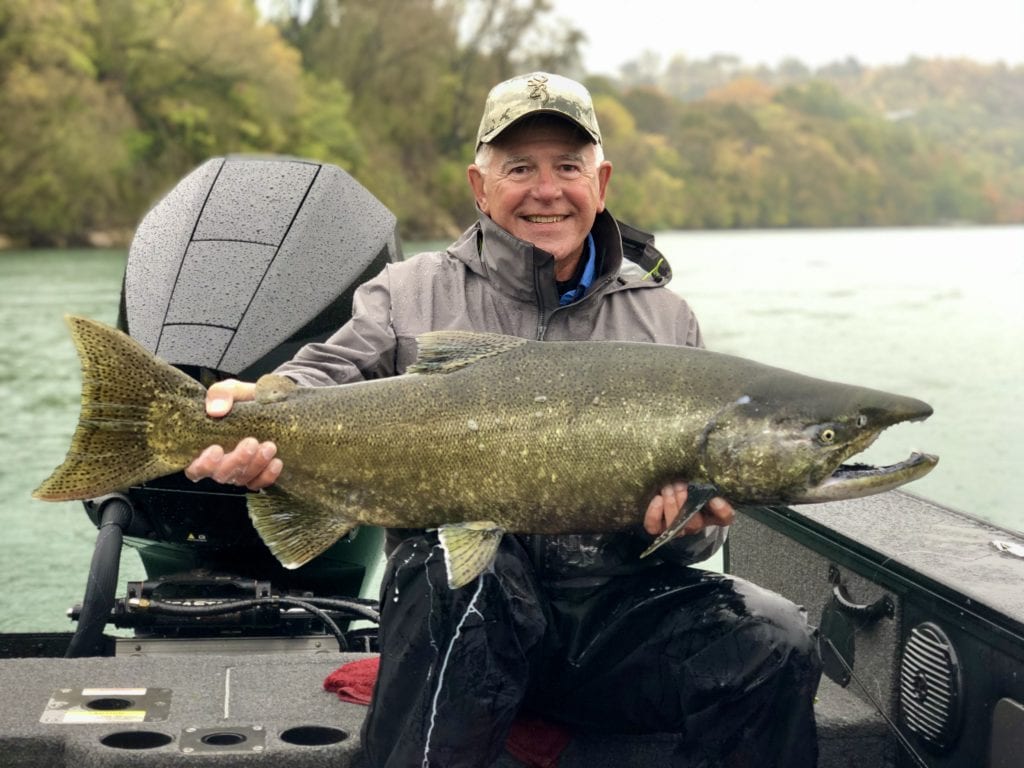
Natural
What am I going to do about this word? Honestly, I could try to define it by providing links to online references but why bother? Attempting to provide a definition for this word without the reader assuming some sort of political leaning is impossible so I’m not going to do it.
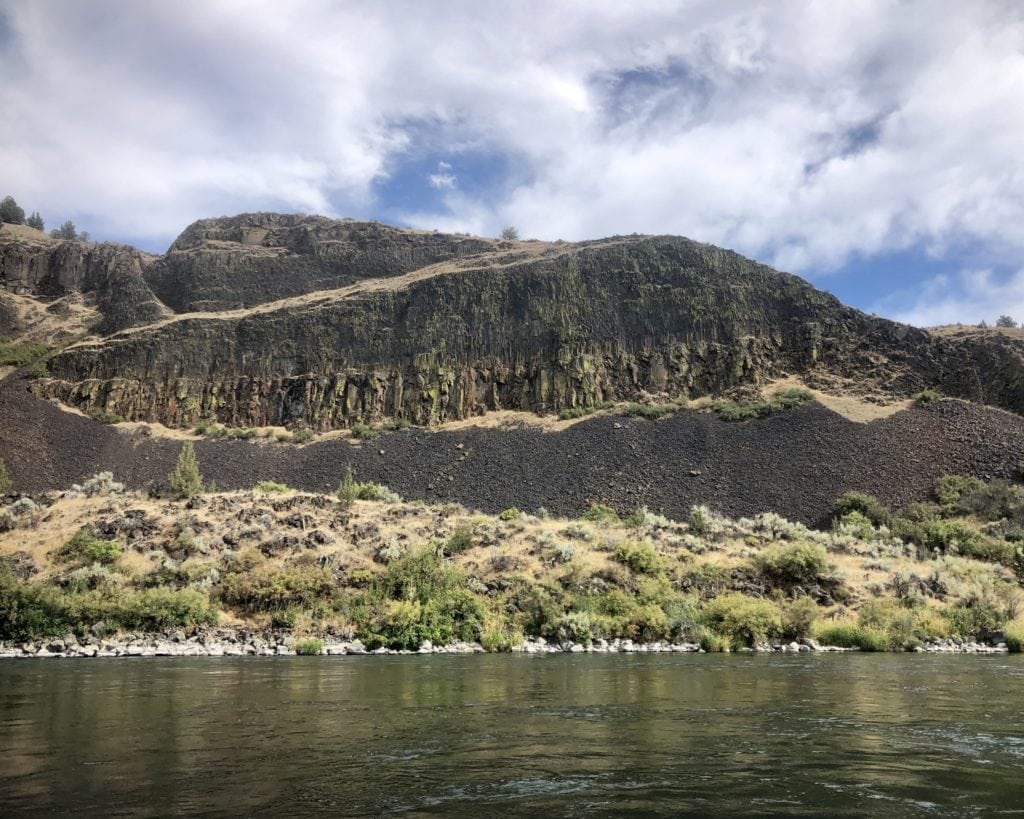
However, I will say that I used to have a firm opinion of the word, “natural.” That opinion is far from firm these days. I’ve seen numerous fisheries around North America and one very remote one in South America (Guyana) – none were without human influence. This sometimes leaves me wanting a deeper escape on every trip. The trip’s not ruined for me, it’s just something I notice and wonder what I’d be feeling if I hadn’t noticed it. Quick aside – Guyana and Alaska were the places these thoughts occurred least.
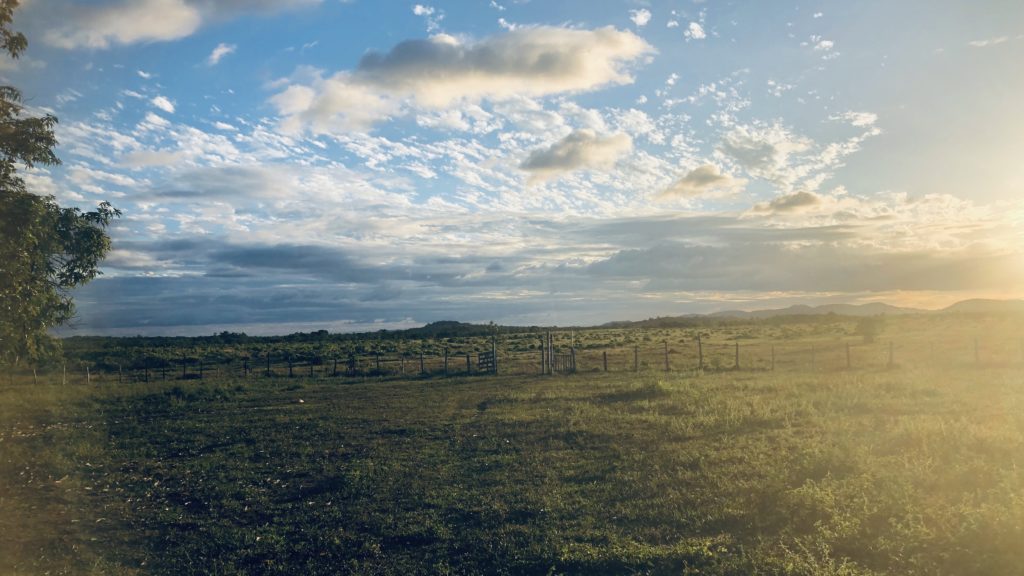
Understandably, challenging the notion of what’s natural will elicit emotional reactions from those aligned to a particular view. Things get emotional at this point because this is where anglers try to distinguish themselves in some way. Tribalism again?!? Well…yeah.
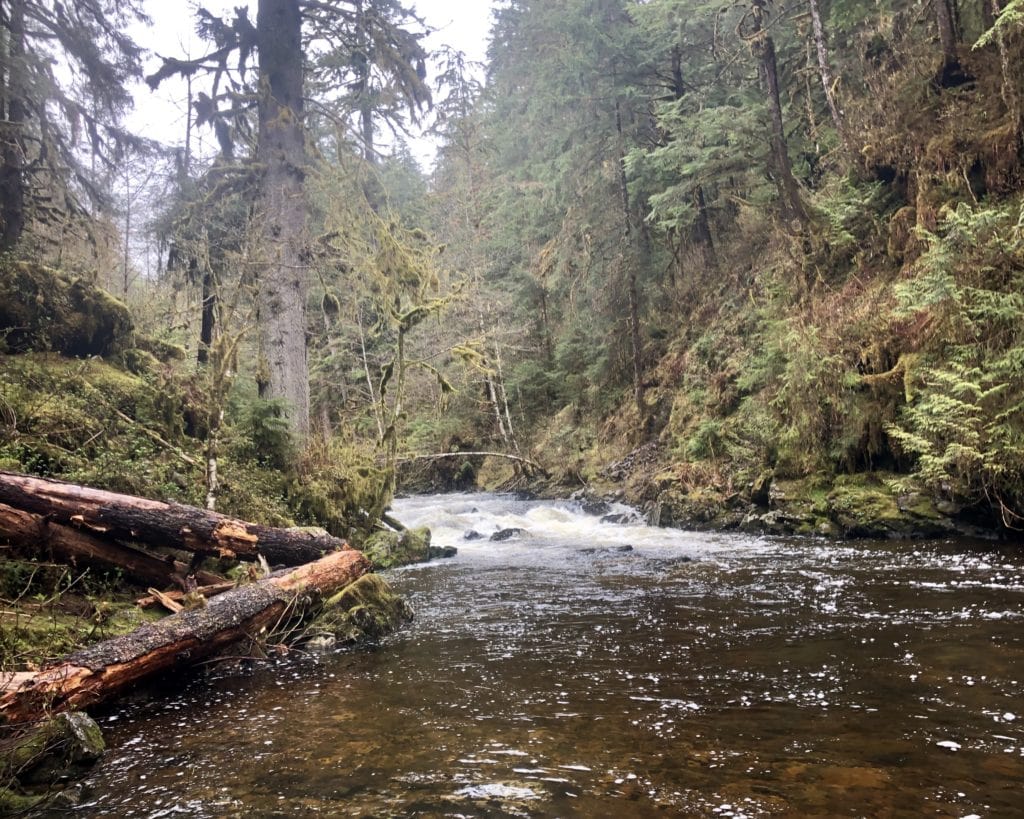
The Tribes
Yes, there are people out there that only pursue native species. Why – because that’s what they want to do. These folks can/will provide numerous, eloquent justifications for this pursuit. All worth understanding. Still, these reasons are personal. EVERYONE – both the holder of the belief as well as the beholder – needs to understand this important fact. FACT – those people that only pursue native fish, do so because that’s their preference. No more – no less.
Wild fish don’t have an exclusive following that I know of. However, there are many anglers that focus their pursuits on fisheries that exhibit as little human influence as possible. I would say that all anglers that pursue wild fish would also pursue native fish if given the chance. Not necessarily the other way around. Again, this system of values is exclusive to this community of like-minded folks. It’s worth understanding. But again, just like in the case of nativists, this mode of pursuit is only a preference.
Stocked fish kinda have an exclusive following. Using trout as an example – there are thousands of fisheries around this country that are exclusively “put-and-take.” This means that someone stocks trout in a body of water just so people can catch and eat them. Individuals from the native and wild tribes often cringe at the thought of shoulder-to-shoulder anglers (people fishing for stocked fish) on a small creek diligently hauling in trout on opening day. Understand why the cringe – carnage, animal cruelty, unnecessary human influence, unsporting. Also, understand what’s going on in that shoulder-to-shoulder scenario – friends and families, connecting to the wild, in a way they would NOT be able to if those fish weren’t stocked there.
In the end – it’s all Beautiful – You Just Need to Allow it to be
Wrapping this up is gonna be tough but here it goes. I should’ve stated up front that this piece is more for me than anyone else. Most people who’ve made it this far likely think I’m far too analytical – they may be right. However, there is a small sample of folks with whom some of these ideas resonated. Think of it like this – my goal, in nearly all my blogs, is to try to understand why I think the way I do. In doing so, I hope this causes someone else to do the same. Why?
A lack of reflective skepticism in one’s live typically results in tribalism – and I loathe tribalism in angling more than anything. Please, if you choose to adopt the views of a tribe, do your best to make sure you do so with an open mind. Keep the doors for dialogue and discourse open no matter your alignment or affiliation. For some reason, and it’s incredibly difficult (for me) to illustrate this, the words “native,” “wild,” “stocked,” and “natural,” have become problematic. I’ve seen these simple words become divisive and, in some cases, I’ve perpetuated this. That’s part of the reason I jotted down these words – gotta put myself in check.
Green River, UT – incredibly amazing place. The fishery is manufactured by man via dams and the introduction of trout but so what – it’s f-ing breathtaking. The same can be said about the Lower Niagara, the Colorado, the San Juan, the Delaware, the Ausable, fill in the next blank. Guyana, South America – bewildering location – nothing but natives. Barely touched by man – directly that is. The same can be said about a ton of places in South America, a lot of Canada, Russia, fill in the blank. All these places are beautiful, albeit in different ways, if you allow them to be.
